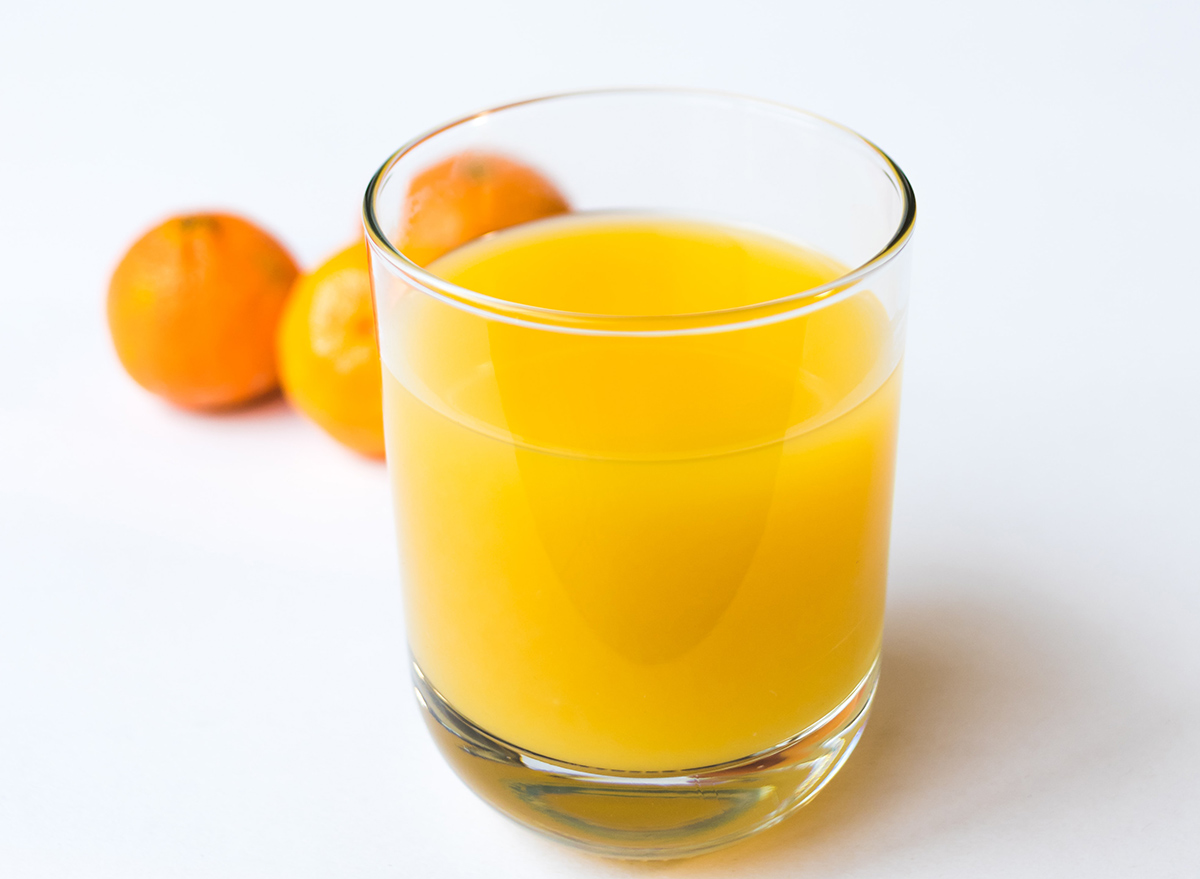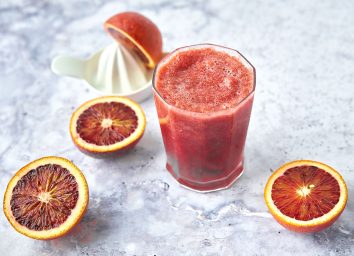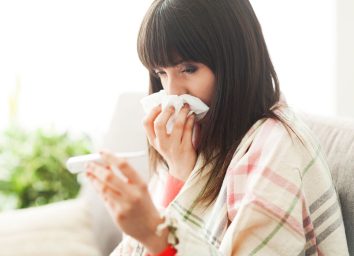Does Orange Juice Really Help With a Cold? We Asked an Expert
As a child, my mother gave me 100 percent orange juice at the first sign of the sniffles, and it’s a habit I’ve continued to this day. My mom fed me orange juice for the vitamin C it supplies, but as a registered dietitian/nutritionist, I know OJ has plenty to offer. But does it actually help cure your cold?
It’s time to investigate and uncover the truth, once and for all.
What is it about orange juice that it’s believed to help combat a cold?
First off, it’s got plenty of that classic vitamin C, as orange juice is an excellent source of it. An 8-ounce glass supplies 124 milligrams, which is 165 percent of the suggested daily intake of vitamin C for females and about 140 percent for men. Vitamin C is also a powerful antioxidant that protects cells, particularly white blood cells (WBC). WBC are on the front line defending the body, and the vitamin C they pack shields WBC as they battle with cold viruses and other germs.
There’s no doubt that vitamin C plays a crucial role in maintaining a strong immune system. Yet, it’s unclear whether drinking orange juice actually turbocharges the body’s defenses, largely because most of the evidence about vitamin C is from studies done with supplements.
A review of the research found that taking supplements on a continuous basis (at least 200 milligrams a day) reduced the length of colds by 8 percent in adults and by 14 percent in children. However, when people took vitamin C pills at the first sign of a cold, they didn’t shorten cold duration or reduce symptom severity.
Although it’s impossible to compare getting vitamin C as part of orange juice with taking pills, we do know that no single nutrient makes for a bullet-proof immune system. Orange juice offers several nutrients that may help you fight colds, though.
Besides vitamin C, what else in orange juice explains how it helps fight a cold?
A glass of OJ is also packing potassium. Potassium is found in cells, including those that fight infection. Your body doesn’t make potassium, so you need to consume it every day. Eight ounces of orange juice supplies nearly 20 percent of the suggested daily intake for women, and 15 percent for men. Potassium also plays a pivotal role in fluid balance, which is important as you lose fluid from by blowing your nose 100 times a day when you’re under the weather, along with sweating if you have a low-grade fever, too.
Besides the vitamins, orange juice is a fluid. Water, as you know, helps maintain body temperature and transports nutrients throughout the body. Orange juice is mostly water and it counts toward the daily recommended intake of nine (8-ounce) cups of fluid for women and 13 cups for men. A study even found that when compared to sports drinks, water, and other beverages, orange juice promoted better fluid balance and helped the body retain more potassium.
Orange juice contains certain carotenoids—beneficial plant compounds also called phytonutrients—that the body converts to vitamin A. Vitamin A protects the tissues lining your nose and throat that act as germ barriers. So the carotenoids in OJ also have antioxidant properties, and help reduce inflammation, which makes you feel better. Hesperidin is another plant compound in orange juice and preliminary research suggests that hesperidin in orange juice supports the immune system.
If you’re looking for ways to make the most out of any fresh-squeezed OJ you have, here are some suggestions for how you can best consume the juice when you’re battling a cold, or whenever you’re in need of a vitamin C boost.
- Mix with equal amounts of hot green or black tea. Warm, steaming beverages relieve congestion and fluid soothes your throat and nose. Add some honey, if desired.
- Freeze as pops. Pour orange juice into pop molds for a cool, refreshing treat.
- Make a spritzer. Mix equal amounts of cold orange juice and plain or lemon seltzer water in a tall glass.
- Whip up a smoothie: Combine 2 ice cubes, 1 medium frozen banana (sliced), 1/2 cup plain Greek yogurt, 1 teaspoon pure vanilla extract, and 1/2 cup orange juice in a food processor or blender. Blend on high speed until smooth, about 1 minute.
Essentially, my mother was right about OJ being a healthy drink, but she probably didn’t know that when it comes to orange juice and colds, the whole food is greater than the sum of its parts. Though 100 percent orange juice contains no added sugar, it’s often lumped in with sugary beverages with no nutritional value, but that isn’t fair. Overall, orange juice is a worthy beverage when you’re under the weather, and even when you’re not. It might not magically cure your cold but it has properties that can help you feel better.









